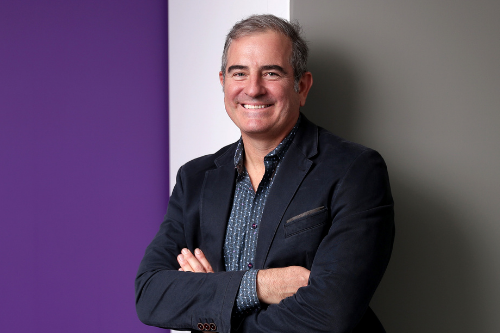

Artificial Intelligence (AI) is reaching the point where it can predict the outcome of an insurance claim based on the claimant’s use of language and tone of voice. Richard Kimber (pictured above), founder and CEO of Australian AI software company Daisee, has developed a speech analytic tool that he says can vastly improve insurance companies’ understanding of their customer interactions.
“As much as the AI machine learning is used to derive the quality, what we’re also able to do is to actually predict outcomes and this is really important in terms of claims and other aspects of the insurance business,” said Kimber.
The Daisee technology is geared towards call centres and uses speech and sentiment analysis technology.
“So, because insurance historically has looked at so much structured data we think there’s a huge opportunity to leverage unstructured data alongside structured data - and voice is probably the richest source of information that insurance companies aren’t tapping into,” he said.
Daisee has partnered with DXC Technology, an American multinational IT services company with a 50-year history of providing the Australian insurance industry with hardware, software and operating systems. DXC also processes claims in the workers’ compensation space. Dr Michael Neary (pictured below) is DXC’s director of insurance in Australia and New Zealand.
“So because we run a claims operation we can very much sit beside the insurers and understand some of the needs and what Daisee does is it gives you the benefit of knowing what’s happening on every call,” he said.

Neary said because they deal with injured workers it’s important to be able to pick up nuances in the language on phone calls so they can provide the appropriate care as quickly as possible.
“You’ve got that lense of compliance and often insurers are dealing with people at their most vulnerable time and their most panicking time and it’s really important that you get it right,” he explained.
Neary said Daisee can monitor every call to make sure customer interactions are meeting expectations and service standards.
Kimber said based on these call centre interactions Daisee is looking into predicting the outcomes of claims.
“Yes, that’s definitely an area we’re looking into,” he confirmed.
He said the speech and sentiment analysis technology analyses a number of factors around distress, including the language, and is able to predict how the claims management is progressing very early on.
“So, we’ve been doing a lot of work around prediction,” he said. “That’s for me the real power of AI. It’s not so much in detection and description but in prediction and being able to evaluate what’s going to happen.”
Kimber said Daisee has over 60 senses that look at the language used on a call.
Read next: Stiff competition driving AI advancements
“It looks at the phrases, the combinations of words, it even looks at the pace at which you speak,” he said. “We use all sorts of NLP algorithms [a type of algorithm that can analyse language] and some of them can even indicate the years of education that a person has all the way through to basic sentiment, which is basically saying ‘are you happy or sad with this’ or ‘was this a good or bad interaction’.”
Call centre agents receive a score based on three categories, said Kimber, that aim to determine how well they are interacting with customers.
“It looks at communication, how well are you interacting? Are you building empathy? Are you using active listening? Those are some of the markers,” he said.
The software can provide scores from a compliance perspective, including how well a call centre agent adhered to compulsory scripts.
“Then on a conduct basis, it looks at factors around, ‘Did you ask the client if there was anything else you could help with? So, it’s looking at quite a broad range of issues and options’.”
Kimber said the key benefit of the system is its ability to pinpoint where a call centre agent needs to focus so they can improve performance.
“It’s multifaceted,” said Neary. “So, if you need to say a phrase, like, ‘This is general advice only,’ it can check absolutely every call that you’ve said that phrase.”
Daisee is also intelligent enough to pick up if a call agent is talking too much and not listening to the customer.
Neary said the reaction from claims teams using Daisee has been positive.
“The reaction I’ve had from the teams is it’s all very positive because this is specific coaching, you know, ‘Let’s listen to that call and how might you have done it better?’” he said.
Kimber said the fact that the software monitors every single call, and call agents know that, means the agents tend to lift their game anyway.
“The other thing that we’ve heard agents like is that it is very fair in that every call is treated equivalently and so if you did have a bad day or one bad call it’s not going to reflect your overall scores,” he said.
Neary said DXC Technology is in discussions with other insurers and brokers about using Daisee technology.
